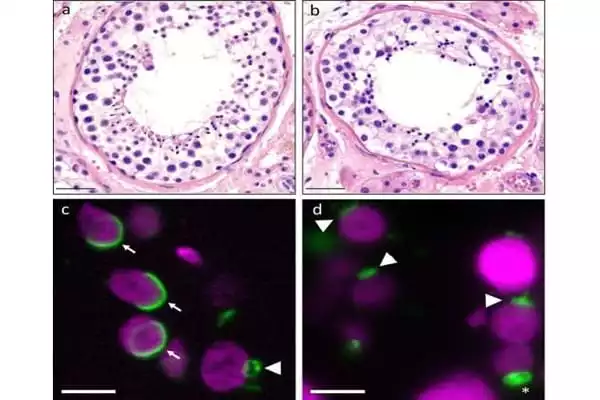Scientists have discovered a new genetic mechanism that can lead to severe male infertility. This breakthrough in understanding the underlying cause of male infertility gives patients hope for improved treatment options in the future. This breakthrough in understanding the underlying cause of male infertility gives patients hope for improved treatment options in the future.
The study, which was published in Nature Communications, demonstrates that new mutations that are not inherited from father or mother play a significant role in this medical condition. Experts have discovered that mutations that occur during the reproduction process, when both parents’ DNA is replicated, can lead to infertility in men later in life.
Improving understanding
It is hoped that this new knowledge will help to provide more answers about the cause of infertility and the best treatment options for infertile couples in the future. The most common causes of male infertility are issues with producing healthy sperm. Sperm may be immature, unusually shaped, or incapable of swimming. You may not have enough sperm in some cases.
If we can get a genetic diagnosis, we can start understanding better male infertility problems and why some infertile men still produce sperm that can be used successfully for assisted reproduction. With our information and the research of others, we hope that clinicians can improve counselling for couples and recommend the best course of action in order to conceive, either by proposing an appropriate medically-assisted procedure or, if none is suitable, by providing appropriate alternatives.
Professor Joris Veltman
The study was led by Professor Joris Veltman, Dean of Newcastle University’s Biosciences Institute in the United Kingdom, and included patients from Newcastle Fertility Centre and Radboud University Medical Centre in the Netherlands.
“This is a true paradigm shift in our understanding of the causes of male infertility,” he said. Most genetic studies focus on recessively inherited causes of infertility, in which both parents are carriers of a gene mutation, and infertility occurs when the son inherits both mutated copies, resulting in fertility problems.”
“However, our research has discovered that mutations that occur when DNA is replicated during reproduction in parents play a significant role in their sons’ infertility.” At the moment, we don’t know what’s causing the majority of infertile men, and this research will hopefully increase the number of men for whom we can provide answers.”

A global cohort of 185 infertile men and their parents’ DNA was collected and studied by scientists. They discovered 145 rare protein-altering mutations that are likely to impair male fertility. As many as 29 of the mutations affect genes directly involved in spermatogenesis (the development of sperm cells) or other cellular processes related to reproduction. Experts discovered mutations in the RBM5 gene in a number of infertile men. Previous research in mice has shown that this gene is involved in male infertility.
Importantly, these mutations almost always result in a dominant form of infertility, which means that only one mutated gene is required. As a result, there is a 50% chance that infertility caused by these mutations will be passed down to the man’s child (if assisted reproductive technologies are used), which may result in infertility, especially in sons. As a result of infertility, millions of children have already been born through assisted reproductive techniques. According to the findings of this study, a significant proportion of these children may inherit infertility from their father.
“If we can get a genetic diagnosis, we can start understanding better male infertility problems and why some infertile men still produce sperm that can be used successfully for assisted reproduction,” Professor Veltman said. With our information and the research of others, we hope that clinicians can improve counselling for couples and recommend the best course of action in order to conceive, either by proposing an appropriate medically-assisted procedure or, if none is suitable, by providing appropriate alternatives.”
Infertility problems
It is estimated that up to 7% of men suffer from infertility, and that the man is responsible for 50% of fertility issues in heterosexual couples. The cause of male infertility is unknown in roughly half of cases.
Moving forward, the researchers hope to broaden their research by studying thousands of patients and their parents as part of a large international consortium. They plan to expand on their findings by looking into the impact of these newly discovered mutated genes on spermatogenesis and overall fertility in humans.















